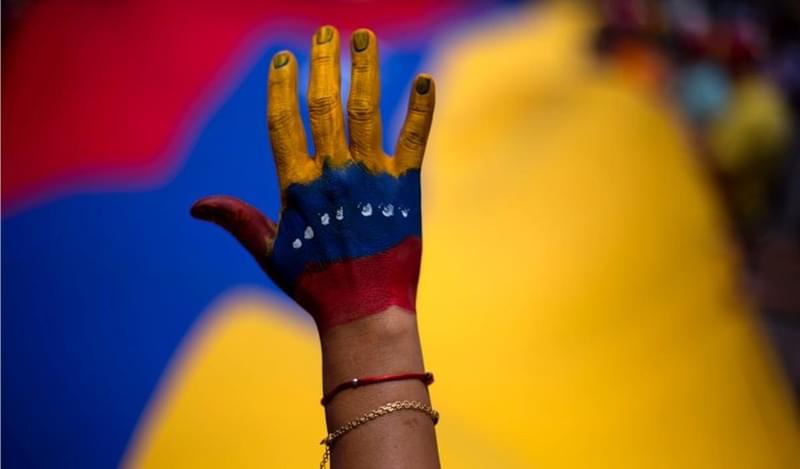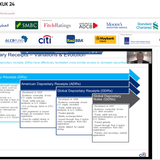When Goldman Sachs purchased Venezuelan bonds, it created an uproar in the financial world. Not only because of accusations fired at the international bank of providing a lifeline to controversial leader Nicolas Maduro, but also because of the incredible discount at which state assets were being sold.
Goldman’s asset management arm paid around US$865mn for US$2.8bn in bonds issued by the state oil company Petroleos de Venezuela (PDVSA) in 2014, maturing in 2022. This represented a real bargain for the US-based bank, working out to around 31 cents on the dollar and implying an annual yield above 40%.
So what has compelled the ailing South American country to sell its assets at this price and, more importantly, why now?
Venezuela’s situation has been rapidly deteriorating over the last three years as the oil prices plunged. Inflation is believed to have reached an astonishing 800%, which was aggravated by the growing disparity between the official and non-official exchange rates (despite 60% devaluation in May); meanwhile, the economy contracted by a staggering 19% on average in 2016.
Shortages in essential medicine, food, and first care products such as toilet paper are now facts of life for most Venezuelans, as the government cuts down on imports to service its financial obligations.
In the past three months, the political landscape has also gone from bad to worse after the Maduro decided to abolished the National Assembly, which is currently controlled by the opposition, only to reverse the ruling soon after due to growing political pressure.
Since then, violent protests have become a daily occurrence in what was once one of Latin America’s strongest economies, clashes that so far resulted in a death toll of 75, with hundreds more injured and detained.
According to Edward Glossop, a Latin American economist for Capital Economics, the government is selling its assets so cheaply because they are desperate for hard cash, and the only option they have left is to liquidate its remaining financial assets.
“The government needs money to both to service its debt and to import the goods they need to alleviate the crisis” the economist explained.
According to data presented by Bloomberg, the country’s reserves fell another US$326mn this week to US$10.2bn, close to a 15-year low. Venezuela is running out of money fast and, as Glossop noted, the country doesn’t have many assets left to sell. And with collapsing oil revenues the only remaining source of income, the US$6.5bn gold reserves have become the last lifeline, and those too are soon to be liquidated.
However, with all the controversy the Goldman Sachs transaction caused in the media, it will be interesting to see who will buy this gold, and at what price Venezuela would have to sell to make it attractive enough for an investor to push past the bad publicity.
Given this scenario, it is fair to say that the government has run out of room for manoeuvre; the only other options will be for the socialist government to ask for a special rescue package from the International Monetary Fund, which would equate to political suicide for Maduro.
This why for Glossop and many other analysts, the Venezuelan default is “inevitable”, and is just a matter of time.
“We have established that a default is likely to happen between 2019-2020 because that is when Venezuela has large debt payments coming up, but there is always the chance of it happening sooner”.
If Maduro Goes, What Next?
Another scenario for the crisis-struck nation is a probable regime change, particularly since the pressure piling on Maduro is discrediting the government.
This in itself might pose another risk as the leader of Venezuela's National Assembly, Julio Borges has threatened that a new government may refuse to pay US$2.8bn bond that Goldman bought.
"It is apparent Goldman Sachs decided to make a quick buck off the suffering of the Venezuelan people,” Borges said in a letter to Goldman CEO Lloyd Blankfein.
This, however, might prove to be harder than it sounds, as Ukraine found earlier this year when it was forced by the London’s High Court Justice to pay back Russia a loan dated from 2013 that they considered unlawful, potentially setting a precedent for this type of case.
“A new government could default potentially on the PDVSA bond owned by Goldman Sachs, but in doing that they will default on all of PDVSA’s remaining debts, so this scenario seems unlikely. Unless of course they default in all of their outstanding debt and enter a restructuring process right from the start,” Glossop.
At this point, there seems little that can be done about Venezuela’s situation: the time for reforms has come and gone, and the ongoing crisis will surely only get worse before it gets better, regardless of who owns the bonds.









